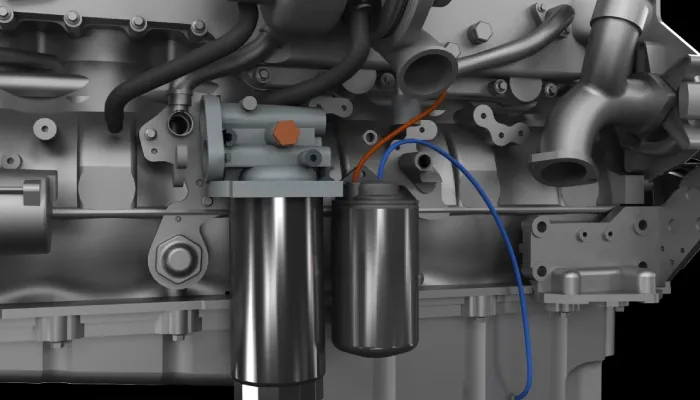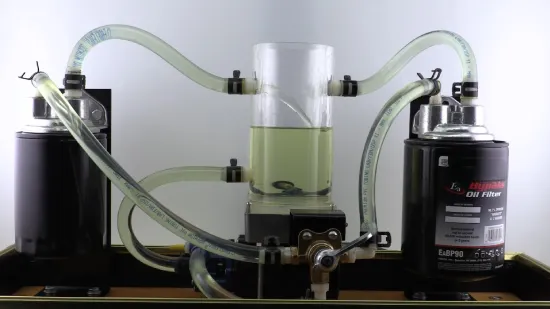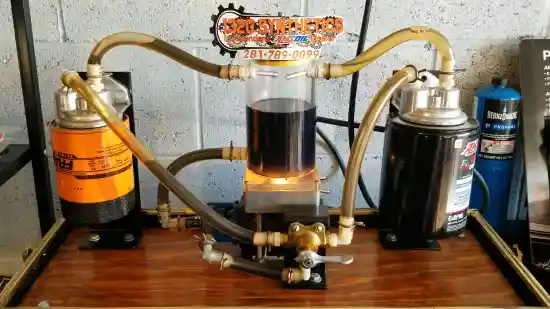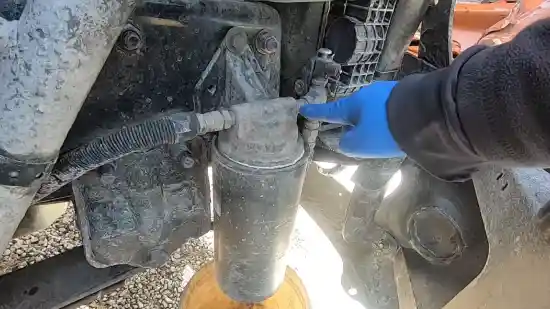Physical Address
304 North Cardinal St.
Dorchester Center, MA 02124
Physical Address
304 North Cardinal St.
Dorchester Center, MA 02124

Bypass oil filter systems have emerged as a crucial technology for enhancing the performance and longevity of vehicle engines. And I’ve always been curious about the effectiveness of bypass oil filter systems for vehicle engines.
According to my research, these systems filter particles as small as 2 microns with an efficiency of 98.7%. This ensures clean oil circulation and prevents engine damage.
Moreover, bypass oil filters improve oil cooling, allowing for better heat dissipation and optimal engine performance.
Throughout this article, I’ll present the facts and discuss whether bypass oil filters are worth investing in for optimal engine performance.

When evaluating the effectiveness of bypass oil filter systems for your vehicle engines, there are several key points to consider. Here, I mention most of them:
Improving particle filtration efficiency is a key advantage of using bypass oil filter systems for vehicle engines. These systems excel at capturing and removing contaminants as small as 2 microns, with an impressive efficiency of 98.7 percent.
This level of filtration surpasses what standard full-flow filters can handle, as they typically are only capable of efficiently filtering particles 10 microns or larger. With their superior particle filtration efficiency, bypass oil filter systems offer significant benefits in terms of engine protection.
By effectively removing particles as small as 2 microns, bypass oil filter systems contribute to an extended engine life. These systems prevent abrasive wear on critical engine components, including pistons, bearings, and camshafts.
When particles and contaminants aren’t adequately filtered, they can cause significant damage to these components, leading to premature engine failure.
However, bypass oil filter systems are designed to remove these harmful particles, ensuring the engine operates smoothly and efficiently for a longer period.
I believe clean oil is essential for lubrication, as it reduces friction and heat generation within the engine. This, in turn, reduces the strain on the engine and minimizes the likelihood of premature wear and component failure.

Using bypass oil filter systems effectively improves oil cooling in vehicle engines. These systems play a crucial role in maintaining the optimal temperature for engine operation.
By removing contaminants and preventing sludge formation and deposits, bypass filters ensure that the oil viscosity and heat dissipation properties are maintained at their best. This allows the oil to absorb and dissipate heat generated during engine operation.
As a result, the engine remains within the desired temperature range, reducing the risk of overheating and associated engine damage. I agree that improved oil cooling also contributes to the overall longevity of the engine by minimizing wear and tear caused by excessive heat.
I have found that bypass oil filter systems are highly effective in extending the oil drain intervals for vehicle engines. This system maintains the oil’s lubricating properties for longer by removing particles and contaminants that can degrade it.
As a result, the need for frequent oil changes is significantly reduced, leading to cost savings and increased operational efficiency.
On the other hand, traditional full-flow filters can only remove particles as small as 20 microns. This means bypass filters can capture and remove much smaller particles that would otherwise accumulate in the oil and cause it to degrade more quickly.
Soot and carbon particles are byproducts of combustion that can accumulate in the oil, leading to engine wear and reduced efficiency. Bypass filters are designed to remove these contaminants from the oil, preventing them from circulating and causing harm.
By removing soot and carbon particles, bypass filters help to prevent their deposition on engine components, such as piston rings and cylinder walls, which can lead to increased friction and wear. As I know, this results in a cleaner engine with reduced carbon buildup and improved overall performance.
When small particles and contaminants are removed from the engine oil, the engine operates more smoothly and efficiently. This reduces friction and wear, allowing the engine to run more effectively and consume less fuel.
The cleaner engine components, such as pistons, cylinders, and valves, experience less resistance, resulting in improved gas mileage and reduced fuel consumption. Additionally, bypass oil filter systems help maintain the viscosity of the engine oil, ensuring optimal lubrication and reducing energy loss due to friction.
I’ve studied the remarkable effectiveness of bypass oil filter systems in enhancing engine performance. These systems improve engine performance by removing contaminants and maintaining oil quality.
Bypass filters capture and remove particles as small as 2 microns, preventing them from circulating in the engine and reducing wear and tear. Moreover, bypass filtration systems help to control oil acidity and prevent the buildup of harmful deposits, ensuring optimal engine performance over time.

The bypass oil filter flow rate determines how frequently the oil circulates through the bypass element to the engine’s operating temperature. This rate is crucial in ensuring that the oil is properly filtered and contaminants are effectively removed.
As per my knowledge, the flow rate of the bypass filter is designed to be low, taking only about 5 to 10% of the oil off the mainstream. This allows the oil to be circulated through the bypass element approximately six times per hour at operating temperature.
Considering their benefits in terms of engine longevity and ease of installation, bypass oil filters are a worthwhile investment.
These filters are designed to remove smaller particles from the oil, which can significantly reduce engine wear and increase its lifespan. Bypass oil filters capture particles as small as 2 microns, protecting critical components such as bearings and pistons from contaminants.
In addition to improving engine life, bypass filters also contribute to better overall engine performance by keeping the oil cleaner for longer periods. This reduces the frequency of oil changes and extends the intervals between maintenance services.
According to my research, a bypass oil filter system won’t nullify or violate any engine warranty. Bypass filters are designed to work in addition to full-flow filters, providing an extra layer of filtration for the engine oil.
Since bypass filters don’t alter the engine in any way, they don’t void the warranty. In fact, every engine can benefit from a bypass filter system, as it helps keep the oil cleaner for longer periods, reduces engine wear, and improves fuel efficiency.

I believe bypass oil filter systems are highly effective for vehicle engines. They provide a significant increase in oil filtration capacity, allowing for cleaner and longer-lasting engine oil.
Compared to conventional filters that only remove particles bigger than 20 microns, bypass oil filters can remove up to 98% of contaminants as small as 2 microns. This level of filtration greatly improves engine performance and extends the life of the engine components.
You can rest assured that installing a bypass oil filter system in your vehicle will not void the warranty and may even extend it. With all the performance benefits, I highly recommend investing in one to maximize your engine’s life span and make sure it runs smoothly for a long time.